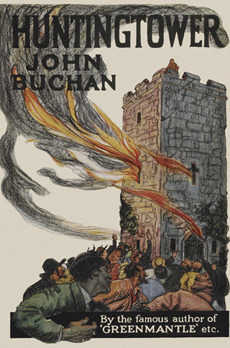What do you think?
Rate this book


170 pages, Paperback
First published January 1, 1922
The boy was on his feet. “I must be off to the camp to give out the orders for the morn. I’m going back to that Hoose, for it’s a fight atween the Gorbals Die-Hards and the scoondrels that are frightenin’ thae women. The question is, Are ye comin’ with me? Mind, ye’ve sworn. But if ye’re no, I’m going mysel’, though I’ll no’ deny I’d be glad o’ company. You anyway–” he added, nodding at Heritage. “Maybe auld McCunn wouldn’t get through the coal-hole.”In its way, "Huntingtower" is a grown-up version of a 1920's Boy's Own yarn: lots of fighting and shooting and desperate sieges in dilapidated buildings. I have to admit I loved it and it's disappointing to find so many nitpickers among the reviews.